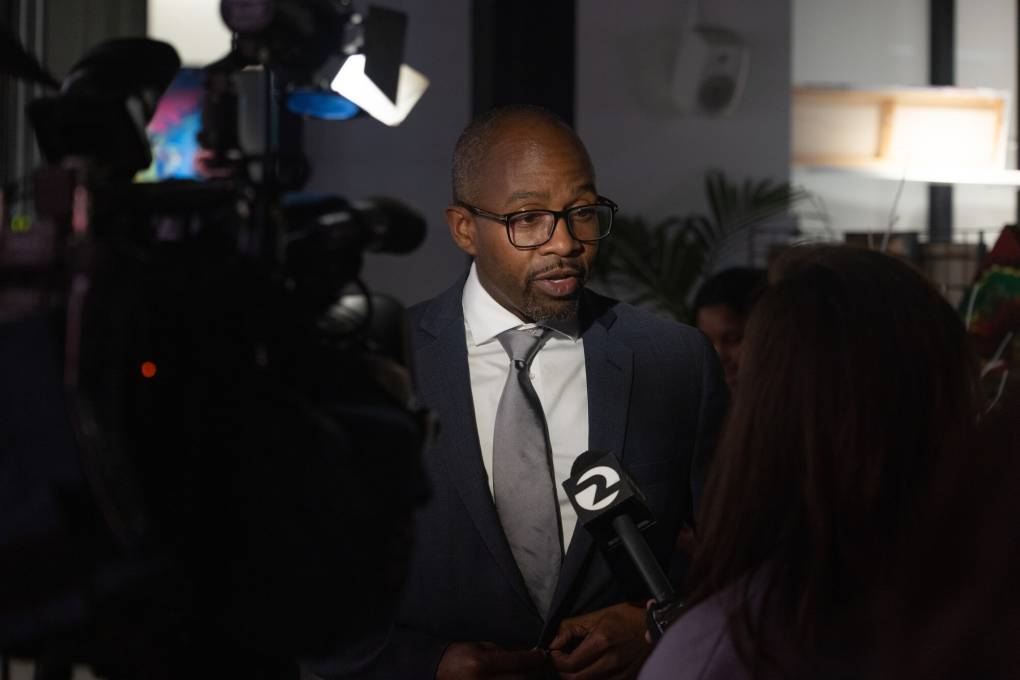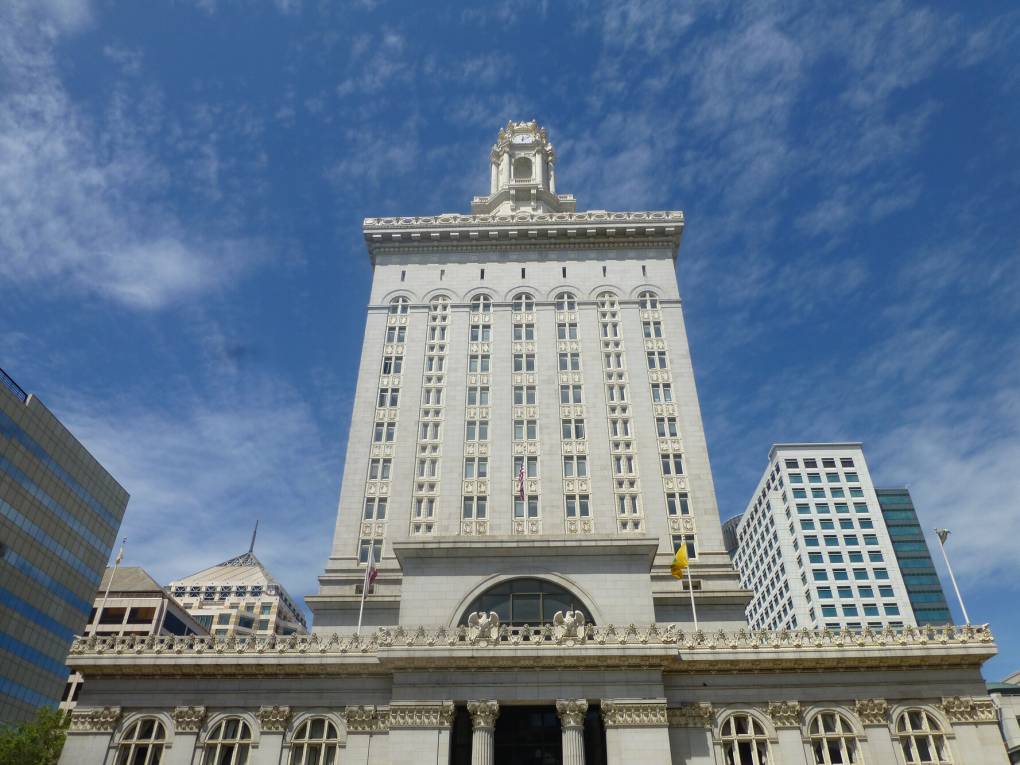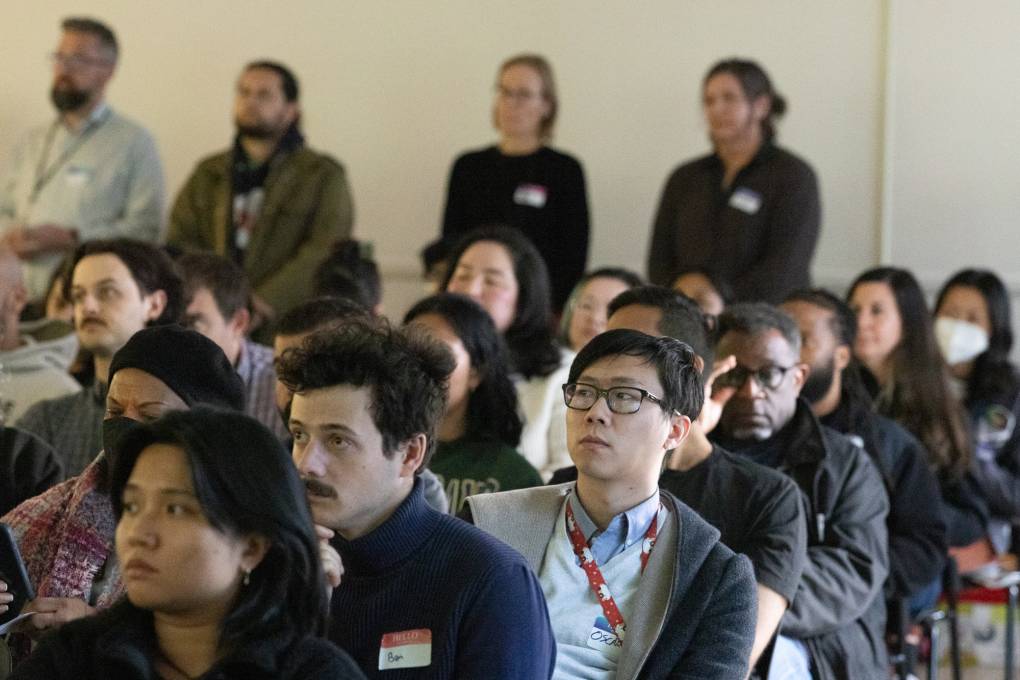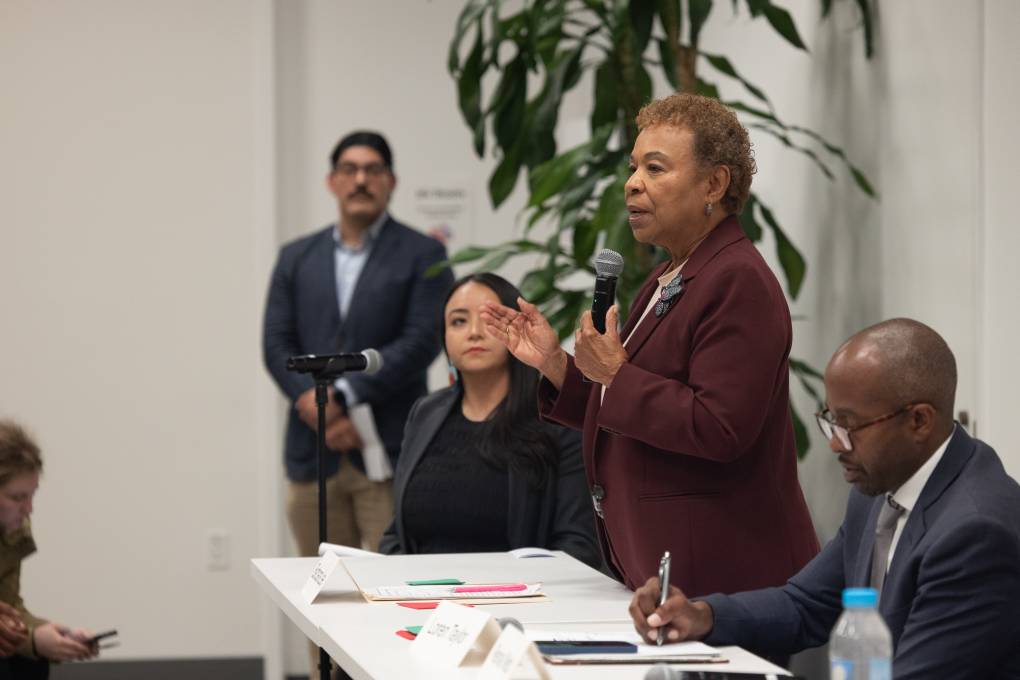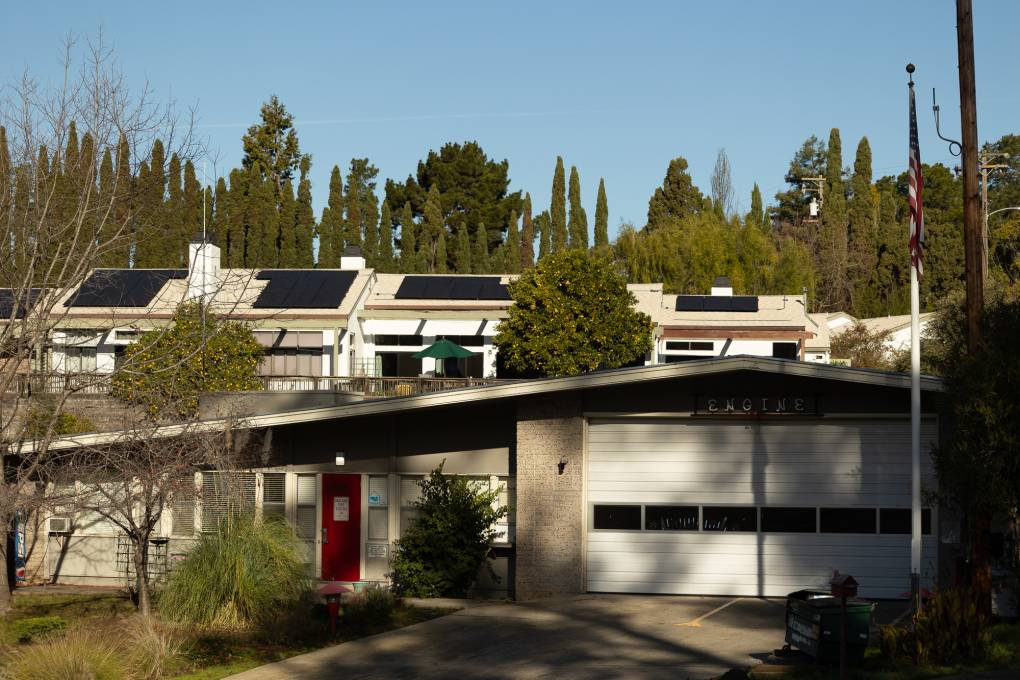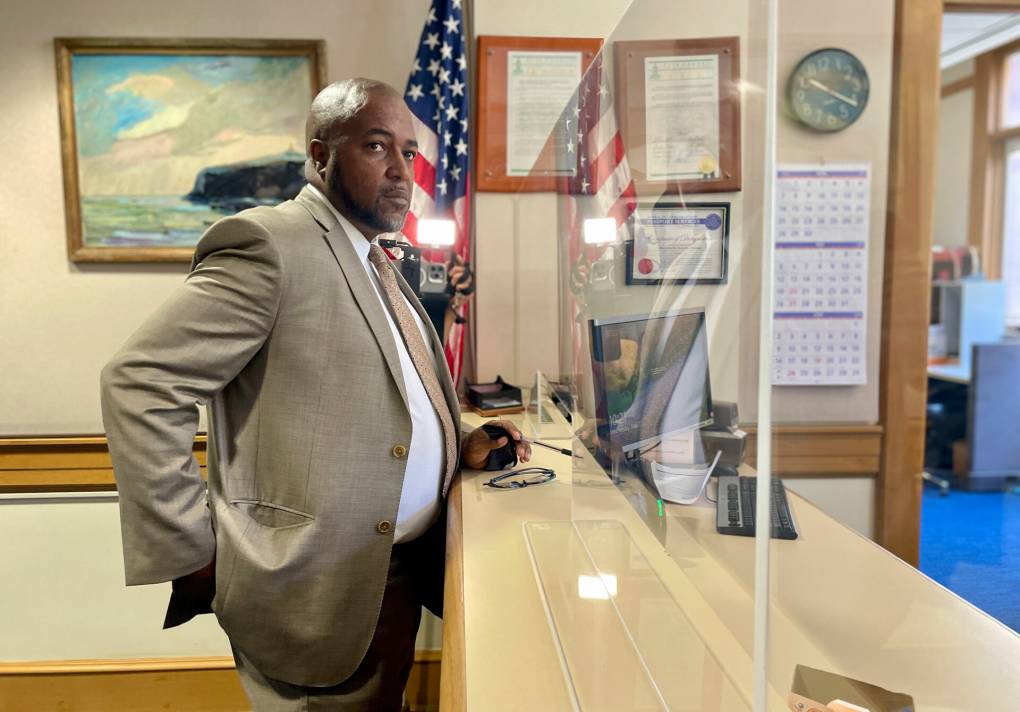Oakland Races
Results are a combination of data provided by the Associated Press (AP) and county election offices. The AP calls winners by analyzing vote tallies and other election data. Check marks are used to denote a winner only when the AP calls a race.
Top candidate wins seat.
Alameda County
Passes with majority vote.
99% of votes countedAssociated PressThis percentage is an Associated Press estimate of how much of the vote in an election has been counted. It is informed by turnout in recent elections, details on votes cast in advance and – after polls close – early returns. The estimate may fluctuate as election officials report additional results and AP learns more about how many voters have cast a ballot.
Top candidate wins seat. This result reflects redistributed votes. The results of the instant runoff will change as more first-choice votes are counted.
Alameda County
Top candidate wins seat. This result reflects redistributed votes. The results of the instant runoff will change as more first-choice votes are counted.
Alameda County
Top candidate wins seat. This result reflects redistributed votes. The results of the instant runoff will change as more first-choice votes are counted.
Alameda County
Top candidate wins seat. This result reflects redistributed votes. The results of the instant runoff will change as more first-choice votes are counted.
Alameda County
Top candidate wins seat. This result reflects redistributed votes. The results of the instant runoff will change as more first-choice votes are counted.
Alameda County
Race to Watch
City Attorney
Top candidate wins seat.
Alameda County
Why does this race matter?
After serving for over a decade as Oakland’s city attorney, Barbara Parker is stepping down this year, making way for someone new to represent the city in legal matters. The change comes at a challenging time for the city, amid rising concerns about crime and housing costs — and as Mayor Sheng Thao battles a recall effort and the embattled Oakland Police Department continues to operate under federal oversight.
What does a city attorney do?
The city attorney is a city’s top legal advisor. Staff in the city attorney’s office provide guidance to elected officials during public meetings, help draft ordinances and appear on behalf of the city in legal proceedings.
Candidates
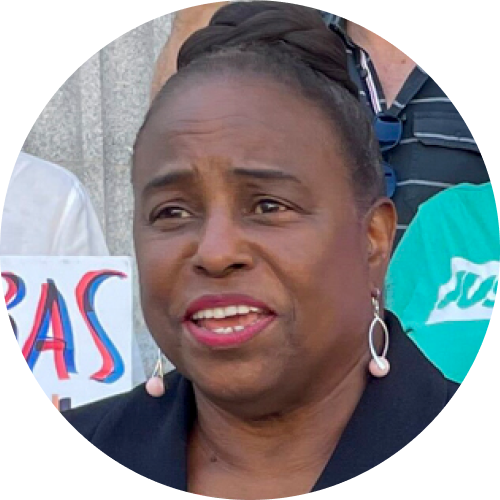
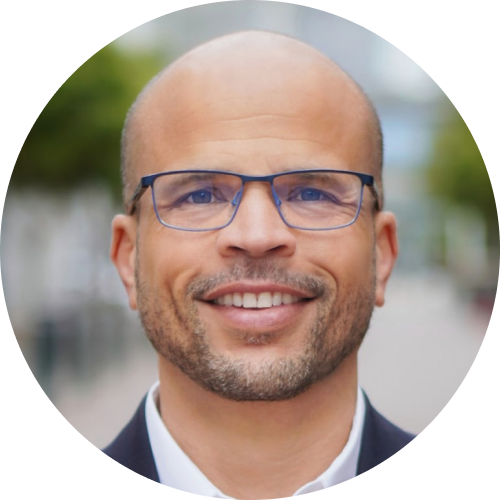
Key Supporters
For Harbin-Forte
- Elihu Harris, former mayor, Oakland
- Robert L. Jackson, senior pastor, Acts Full Gospel Church of God in Christ
- Joan S. Cartwright, retired judge
- Robert L. Harris, former attorney and vice president, PG&E
- Evelio Grillo, retired judge
For Richardson
- Barbara Parker, current city attorney, Oakland
- Sheng Thao, mayor, Oakland
- Iron Workers Union Local 378
- Building and Construction Trades Council of Alameda County
- David Chiu, city attorney, San Francisco
Positions on Key IssuesCandidate summaries are based on interviews with the candidates, questionnaires, statements made at debates and public events, and past news coverage.
Almost half of Oakland’s renter households are rent burdened — meaning they are spending more than 30% of their annual income on rent. As city attorney, how would you make housing more affordable for renters?
What role can the city attorney play in addressing ongoing crime concerns? What can someone in this position proactively do?
What’s your position on the effort to recall Mayor Sheng Thao? What impact is this having on Oakland politics?
Race to Watch
Passes with majority vote.
99% of votes countedAssociated PressThis percentage is an Associated Press estimate of how much of the vote in an election has been counted. It is informed by turnout in recent elections, details on votes cast in advance and – after polls close – early returns. The estimate may fluctuate as election officials report additional results and AP learns more about how many voters have cast a ballot.
What would the measure do?
If a simple majority (50% +1) votes Yes, Thao — who was elected to a four-year term in November 2022 — would be forced to step down after the election is certified. The City Council president would become interim mayor while a special election takes place within 120 days. The winner will serve out the remainder of Thao’s term. The election could also be extended an additional 90 days to consolidate with the next municipal or statewide election.
Yes Argument
Under Thao’s leadership, crime has driven businesses and residents out of the city. Within weeks of taking office, Thao fired former Oakland Police Chief LeRonne Armstrong, delaying the police department’s exit from over 20 years of federal oversight. Last year, her administration missed a deadline to apply for millions of dollars of state grant funding to combat retail theft. And the city is now dealing with a massive budget deficit and is about to lose the Oakland A’s. The FBI’s recent raid of Thao’s home is also very troubling.
No Argument
The $1.2 million recall election is undemocratic and a gross misuse of taxpayer money. Many of the challenges Oakland faces existed before Thao took office. In fact, recall supporters announced their effort in January, just one year into her administration, and well before she was able to have any real impact on the city. The recall is largely bankrolled by wealthy donors who don’t live in Oakland and is a disservice to voters who legitimately elected Thao in 2022.
Key Supporters
In Support
- Cynthia Adams, president of NAACP Oakland
- Ron Conway, tech investor
- Philip Dreyfuss, hedge fund executive
- Brenda Harbin-Forte, former Alameda County judge and Oakland Police commissioner, now running for Oakland city attorney
- Libby Schaaf, former mayor, city of Oakland
In Opposition
- Barbara Lee, U.S. representative
- Quinn Delaney, founder and board chair, Akonadi Foundation
- Jean Quan, former mayor, Oakland
- Nancy Skinner, state senator
- Alameda County Democratic Party
City Council, At-Large
This is a ranked choice election. If no candidate receives a majority of first-choice votes, an instant runoff will take place. Candidates with the fewest first-choice votes are eliminated and voters who ranked them first have their next-ranked choices redistributed until a candidate receives a majority.
Ranked Choice Results
Top candidate wins seat. This result reflects redistributed votes. The results of the instant runoff will change as more first-choice votes are counted.
Alameda County
First-Choice Votes
Top candidate wins seat. This result only reflects voters’ first-choice candidate. If votes are redistributed in an instant runoff, they are not reflected in this result.
Alameda County
What does a council member do?
City and town council members can propose new city ordinances and vote on a range of issues, including housing development, business ventures and contracts. They also help draft the city or town budget.
Candidate Statements
LeRonne L. Armstrong
- Public Safety Advisor
- Experience: “For 24 years, I have dedicated my career to keeping Oakland safe through practical and common-sense leadership.”
- Budget: “I successfully managed Oakland’s largest department, the Oakland Police Department, and brought it $3 million under budget.”
- Priorities: “As a city council member, I will continue to champion community-focused solutions and foster partnerships that enhance public safety and improve quality of life.”
- www.armstrongforoakland.com
Shawn Danino
- Senior development officer
- Experience: “I am a dedicated public servant, a dues-paying union member, and housing expert with a proven track record of passing laws supporting working families.”
- Housing: “I worked at the State Housing Department and collaborated with Oakland city staff to approve an eight-year housing plan, while spearheading a $100 million fund to build affordable backyard homes.”
- Priorities: “Address climate change, the cost of child care, and propose a zero displacement housing program, a four-day work week, a neighborhood market plan, and a reliable transit system that make Oakland safe and welcoming.”
- daninoforoakland.com
Mindy Ruth Pechenuk
- Educator/researcher
- Public Safety: “I believe that to make Oakland safe and productive again, I will make crime illegal again! … I will increase our police, call for the National Guard.”
- Experience: “I have 50 years of experience in political organizing. I am also a classical musician/educator and a master of the American System of economics.”
- Priorities: “I will create skilled jobs in industry, expand our Oakland Port, and support our local businesses. No more budget cuts to essential services. This is part of solving the homelessness.”
- electmindy.com
Nancy Sidebotham
- Tax preparer
- Collaboration: “As a small-business owner and community activist, I know the importance of working with neighborhood groups to build community.”
- Experience: “[Being] chairperson for 29X NC, and member of the CPAB and Neighborhood Watch Committees have given me an in-depth knowledge of city organizations, ordinances, policies, budgets and politics.”
- Priorities: “I won’t saddle you with bad garbage contracts, give away public land, or push out residents who have made Oakland great. I will work for all of us.”
Cristina “Tina” Tostado
- Retail supervisor
- Experience: “Appointed Oakland Library Commissioner, RPYP board, Oakland Education Fund Advisory board and mentor to Teen Leadership programs aimed to end senseless gun violence.”
- Priorities: “Investing in mental health services, economic business development and ensuring our tax dollars work for us … I pledge accountability, accessibility and dedication to problem-solving.”
- Collaboration: “Building safe and healthy communities takes collaboration.”
- www.TinaFromTheTown.com
Rowena Brown
- State legislator director
- Experience: “I offer years of experience as an Oakland constituent coordinator — where I engaged neighbors to fight drug hot spots, blight, and illegal dumping.”
- Priorities: “As your council member, I’ll make our neighborhoods cleaner and safer, support our small businesses, and employ our youth.”
- Gun Violence: “I stand for: ending gun violence through investment in accountable, neighborhood-empowered solutions.”
- www.RowenaforOakland.com
Kanitha Matoury
- Small-business owner
- Priorities: “I will push to expedite the building of affordable housing, implement effective community policing, and restore our once vibrant small business community.”
- Small Businesses: “I agree with Barack Obama who said small businesses ‘are the backbone of our economy and the cornerstones of our communities.’”
- Experience: “With 17 years experience serving the public and balancing budgets for my restaurant Spice Monkey, and nine years as a U.S. Air Force veteran, I bring accountability and teamwork skills where needed most.”
- kanithaforoakland.com
Fabian Robinson
- Pastor
- Public Safety: “My vision is a safe Oakland with ‘zero’ murders. No Oakland citizen should have to worry about being robbed, or have to deal with car break-ins.”
- Clean Streets: “In certain areas kids can’t walk home from school safely because of needles and drug paraphernalia on the sidewalk. This is not good. Pet owners should be able to walk their pet down the street safely.”
- Mental Health: “To help those with mental challenges I advocate for hiring more mental health professionals to help our city.”
Selika Thomas
- Hair loss restoration
- Public Safety: “I’ve been a victim of crime, and crime prevention is my top priority.”
- Priorities: “I’m for enforcing law and order, increasing police patrol, housing the unsheltered, investing in the youth, market rate paying jobs for residents with or without felonies, and clean and safe streets.”
- Experience: “I have struggles common to Oakland residents: home and car break-ins, attempted home invasions, abandoned cars, car chases, and homeless people living on my street. I became block captain to help solve issues in my neighborhood.”
- selikathomasforcitycouncil.com
Charlene Wang
- Civil rights advisor
- Public Safety: “My priority is reducing crime. … Oakland’s unacceptable 911 wait times are deadly. We need more police, hired locally, to be responsive and build community trust.”
- Priorities: “We need better blue collar jobs keeping people from crime. Let’s turn Oakland into a renewable energy and cultural powerhouse with clean manufacturing jobs and thriving businesses in cultural districts.”
- Experience: “As a Biden-Harris administration official, I launched billion-dollar programs reconnecting segregated communities bringing construction jobs to Oakland and second-chances for people leaving prison.”
- www.charleneforoakland.com
City Council, District 1
This is a ranked choice election. If no candidate receives a majority of first-choice votes, an instant runoff will take place. Candidates with the fewest first-choice votes are eliminated and voters who ranked them first have their next-ranked choices redistributed until a candidate receives a majority.
Ranked Choice Results
Top candidate wins seat. This result reflects redistributed votes. The results of the instant runoff will change as more first-choice votes are counted.
Alameda County
First-Choice Votes
Top candidate wins seat. This result only reflects voters’ first-choice candidate. If votes are redistributed in an instant runoff, they are not reflected in this result.
Alameda County
What does a council member do?
City and town council members can propose new city ordinances and vote on a range of issues, including housing development, business ventures and contracts. They also help draft the city or town budget.
Candidate Statements
Edward C. Frank
- Homemaker/business owner
- Experience: “Husband of a primary care physician, stay-at-home dad of two sons, and a volunteer leader at our local public elementary school … I’m also a small-business owner.”
- Priorities: “We are at a crossroads — tasked with deciding whether to continue along the same well-worn path that has led us to the here and now, or to nimbly pivot in a new direction that encourages exploring and imagining alternative models of municipal governance.”
- Social Change: “Our beautifully diverse town has historically been a locus of social change.”
Zac Unger
- Firefighter
- Experience: “A firefighter, paramedic, and labor leader with the Oakland Fire Department since 1998 … I am a pragmatic public servant who knows firsthand how this city functions.”
- Measure Oversight: “I’ve served on the steering committees for voter-approved measures including Y and Z (public safety improvements), KK and U (infrastructure improvements), and T (reducing taxes for small businesses).”
- Priorities: “Increasing affordable housing production, fully funding public safety, restoring functional city services, and being responsive to District 1 residents.”
- www.zac4oakland.com
Len Raphael
- CPA
- Education: “I studied sociology at Columbia and later earned accounting/tax degrees from Alameda JC, Berkeley, and GGU.”
- Entrepreneurship: “After working at Price Waterhouse and Deloitte, I opened my accounting practice in Oakland, specializing in small- to medium-sized tech businesses.”
- Experience: “I have served as Temple Beth Abraham treasurer, Alameda Contra Costa Youth Soccer League treasurer, cofounded the SaferTemescal unarmed private patrol. … I was treasurer of the Coalition for Police Accountability.”
Race to Watch
City Council, District 3
This is a ranked choice election. If no candidate receives a majority of first-choice votes, an instant runoff will take place. Candidates with the fewest first-choice votes are eliminated and voters who ranked them first have their next-ranked choices redistributed until a candidate receives a majority.
Ranked Choice Results
Top candidate wins seat. This result reflects redistributed votes. The results of the instant runoff will change as more first-choice votes are counted.
Alameda County
First-Choice Votes
Top candidate wins seat. This result only reflects voters’ first-choice candidate. If votes are redistributed in an instant runoff, they are not reflected in this result.
Alameda County
Why does this race matter?
Councilmember Carroll Fife is running for reelection in this West Oakland district that stretches from the Bay to Lake Merritt, and from Mosswood Park to the Port of Oakland. She faces a packed field of opponents who think their plans to address homelessness and public safety will better serve residents.
What does a council member do?
City and town council members can propose new city ordinances and vote on a range of issues, including housing development, business ventures and contracts. They also help draft the city or town budget.
Candidates
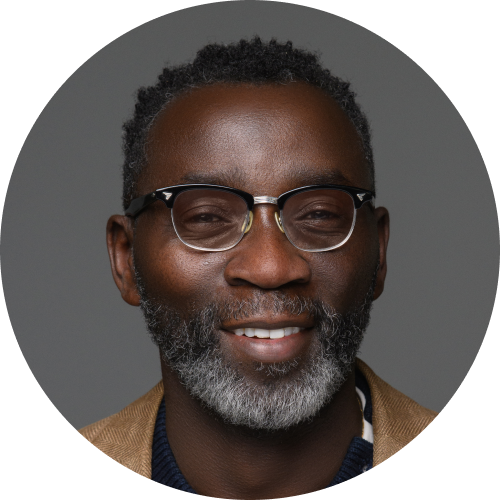
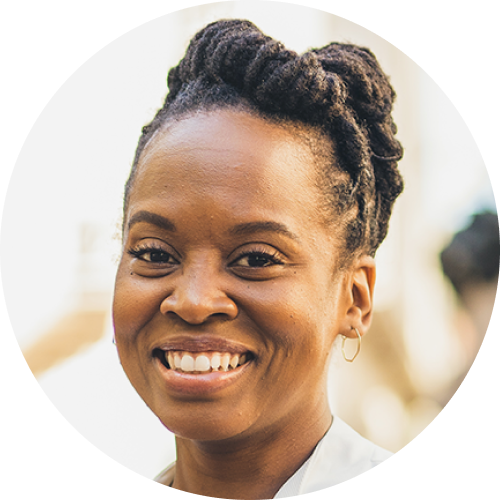
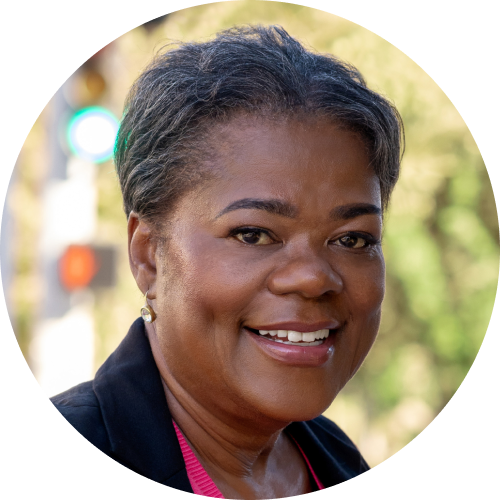

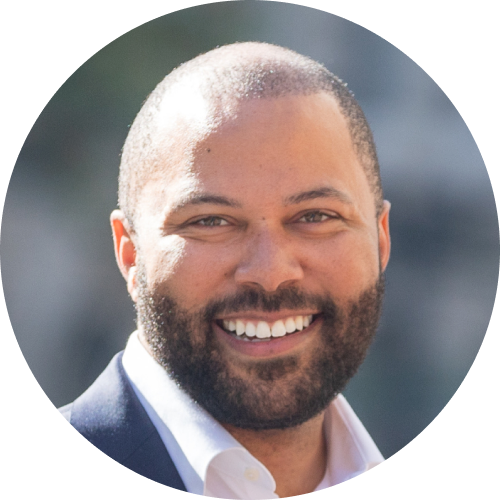

Key Supporters
For Afolabi
- Vernon Anderson, executive, Google
- Amen Ogunmekan, medical science liaison, Alkermes
- Diamond Kelley, registered nurse, UCSF
- Jason Matthews, firefighter, Signal Mountain Fire Department
- Kayde Omosheyin, human resources officers, California
For Fife
- IFPTE Local 21
- Alameda Labor Council
- APEN Action
- Mia Bonta, state Assembly member
- James Chanin, attorney
For Hailey
- N/A
For Hirsch
- Oscar Wright, local resident
- Patricia Wright, local resident
- Theodros Shawl, local resident
For Logan
- Elaine Brown, former Black Panther
- Corey Smith, president, Housing Action Coalition
- Nenna Joiner, local business owner
- Kevin Pelgone, local business owner
- Libby Schaaf, former mayor, Oakland
For Semedar
- Bee Healthy Honey Shop
- Oasis Food Market
- Berhane Embaye, housekeeper, Highland hospital
- Yonas Gebreselassie, attorney
- Henos Haile, contractor
Positions on Key IssuesCandidate summaries are based on interviews with the candidates, questionnaires, statements made at debates and public events, and past news coverage.
Homeless encampments, like the one previously at Wood Street, have long been a part of District 3. The Supreme Court’s ruling earlier this year gives cities new power to force people off the streets, including allowing police to cite and arrest people experiencing homelessness. In light of that, how would you address encampments in the district?
In the last year, former Mayor Libby Schaaf, current Mayor Sheng Thao and the campaign to recall Thao have all been accused of violating campaign finance rules. How do you think the city should ensure candidates and elected officials follow city and state ethics rules?
Oakland is currently operating with a structural deficit, which means the city is regularly taking in less money than it spends. How do you think this should be addressed?
What are your proposals for improving public safety in District 3?
District 3 includes downtown Oakland, which has struggled with vacancies since the pandemic. What would you do to revitalize downtown?
City Council, District 5
This is a ranked choice election. If no candidate receives a majority of first-choice votes, an instant runoff will take place. Candidates with the fewest first-choice votes are eliminated and voters who ranked them first have their next-ranked choices redistributed until a candidate receives a majority.
Ranked Choice Results
Top candidate wins seat. This result reflects redistributed votes. The results of the instant runoff will change as more first-choice votes are counted.
Alameda County
First-Choice Votes
Top candidate wins seat. This result only reflects voters’ first-choice candidate. If votes are redistributed in an instant runoff, they are not reflected in this result.
Alameda County
What does a council member do?
City and town council members can propose new city ordinances and vote on a range of issues, including housing development, business ventures and contracts. They also help draft the city or town budget.
Candidate Statements
Erin Armstrong
- Senior policy advisor
- Experience: “Decades of experience promoting clean streets and safe neighborhoods as advisor to the Alameda County Board of Supervisors, chair of the Bart Police Citizen Review Board (BPCRB), and a nonprofit leader.”
- Public Safety: “I champion public safety, leading the BPCRB and Ad Hoc Committee on Urban Areas Security Initiative, overseeing the BART Police Department, advancing responsible policing, addressing misconduct, and promoting emergency preparedness.”
- Housing: “I developed Measure W to prevent homelessness, guided the Alameda County Affordable Housing Plan, including over $2 billion to produce and preserve affordable housing.”
- www.voteforerin.com
Dominic Prado
- Restaurant owner
- Experience: “I’m a restaurant owner in the Fruitvale District that has been affected by crime and decreased sales.”
- Public Safety: “I have advocated for clean and safer neighborhoods and traffic safety in District 5.”
- Priorities: “I believe in accountability and responsible government and ensuring that everyone’s voice is heard.”
- www.prado4oakland.com
Noel Gallo
- Oakland City Council Member, District 5
- Experience: “I am a lifelong advocate for children and families with decades of proven experience, commitment, and service to Oakland residents on the school board and city council.”
- Public Safety: “Accountable policing, fire and ambassador safety services. Increasing neighborhood, vehicular and pedestrian safety.”
- Economic Growth: “Retaining, attracting and investing in businesses that promote job creation and training.”
- www.NoelGalloForOakland.com
City Council, District 7
This is a ranked choice election. If no candidate receives a majority of first-choice votes, an instant runoff will take place. Candidates with the fewest first-choice votes are eliminated and voters who ranked them first have their next-ranked choices redistributed until a candidate receives a majority.
Ranked Choice Results
Top candidate wins seat. This result reflects redistributed votes. The results of the instant runoff will change as more first-choice votes are counted.
Alameda County
First-Choice Votes
Top candidate wins seat. This result only reflects voters’ first-choice candidate. If votes are redistributed in an instant runoff, they are not reflected in this result.
Alameda County
What does a council member do?
City and town council members can propose new city ordinances and vote on a range of issues, including housing development, business ventures and contracts. They also help draft the city or town budget.
Candidate Statements
Merika Goolsby
- Small-business owner
- Experience: “Throughout my career, I worked as a counselor and MFT, supporting teen mothers, formerly incarcerated adults, and troubled youth.”
- Animals: “As a passionate vegan animal lover, I have volunteered at animal shelters to advocate for their welfare, for the past twelve years, I owned a small pet-care business.”
- Environment: “I also garden and have contributed my time to environmental justice organizations, reflecting my commitment to the planet.”
Ken Houston
- Executive director
- Experience: “I have served for 10 years as executive director of the Beautification Council, providing training and jobs to the justice-involved and unsheltered, while addressing the most pernicious blight in our community.”
- Collaboration: “I will ensure that the residents and businesses become our highest priority by working collaboratively.”
- Priorities: “This is a critical time for us to create a pathway for economic equality, and to propel our people out of poverty, crime, homelessness, and exposure to blight.”
Marcie Hodge
- Nonprofit executive director
- Priorities: “Together we need proactive leadership in the district to combat escalating crime, pervasive blight, lack of police response, and alarming business closures.”
- Growth: “I want to be your unwavering advocate for neighborhood revitalization.”
- Experience: “With a doctorate in organizational development and experience as a teacher, youth counselor, advocate for vulnerable teens, and business owner, I’ve witnessed the toll that crime, blight, and homelessness have taken on our city.”
Iris Merriouns
- Chief of staff
- Experience: “Serving as chief of staff for Oakland City Council members for over 25 years, I have driven real change for our neighborhoods.”
- Accomplishments: “The creation of thousands of good-paying jobs, and transformative policy changes to reduce crime, revitalize blighted neighborhoods, support first-time homebuyers, and build impactful programs for youth and seniors.”
- Priorities: “It is more urgent now than ever to invest in public safety, safeguard affordable housing, create economic opportunities, and build community engagement.”
To learn more about how we use your information, please read our privacy policy.
Signed up.
More Results
See results for all elections on the Alameda County ballot.
Have a correction? Contact voterguide@kqed.org.
